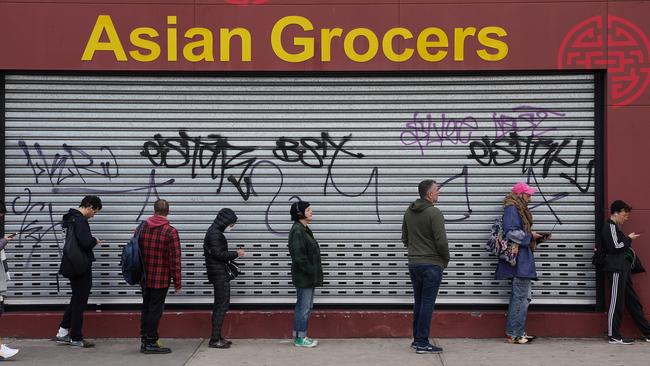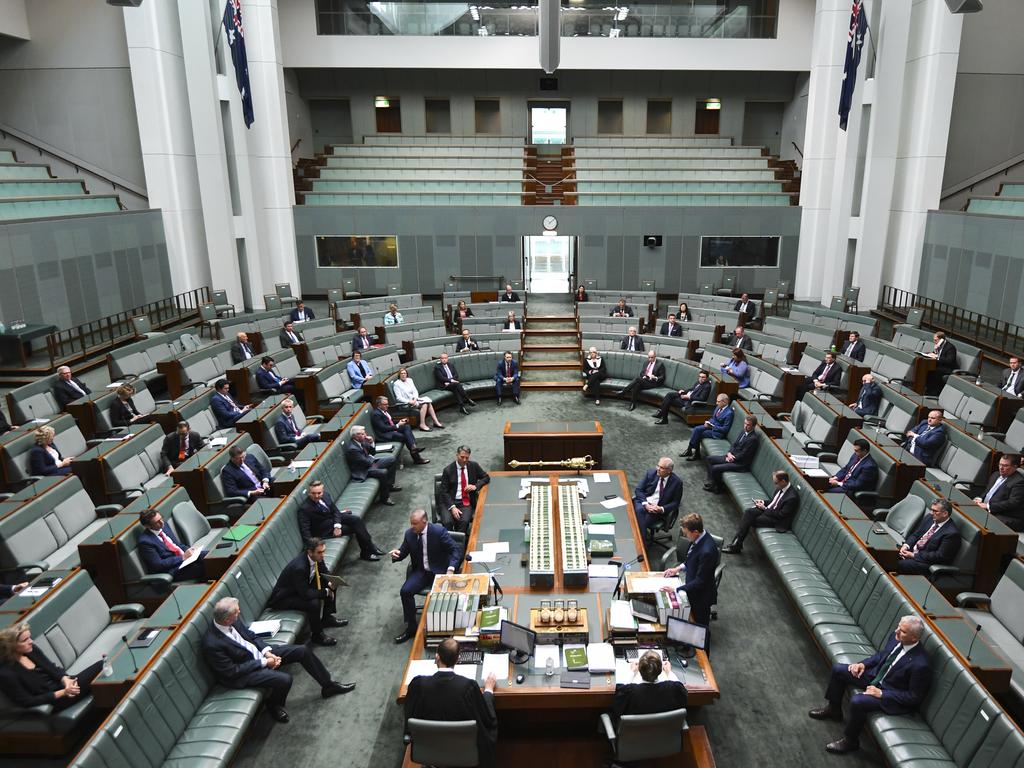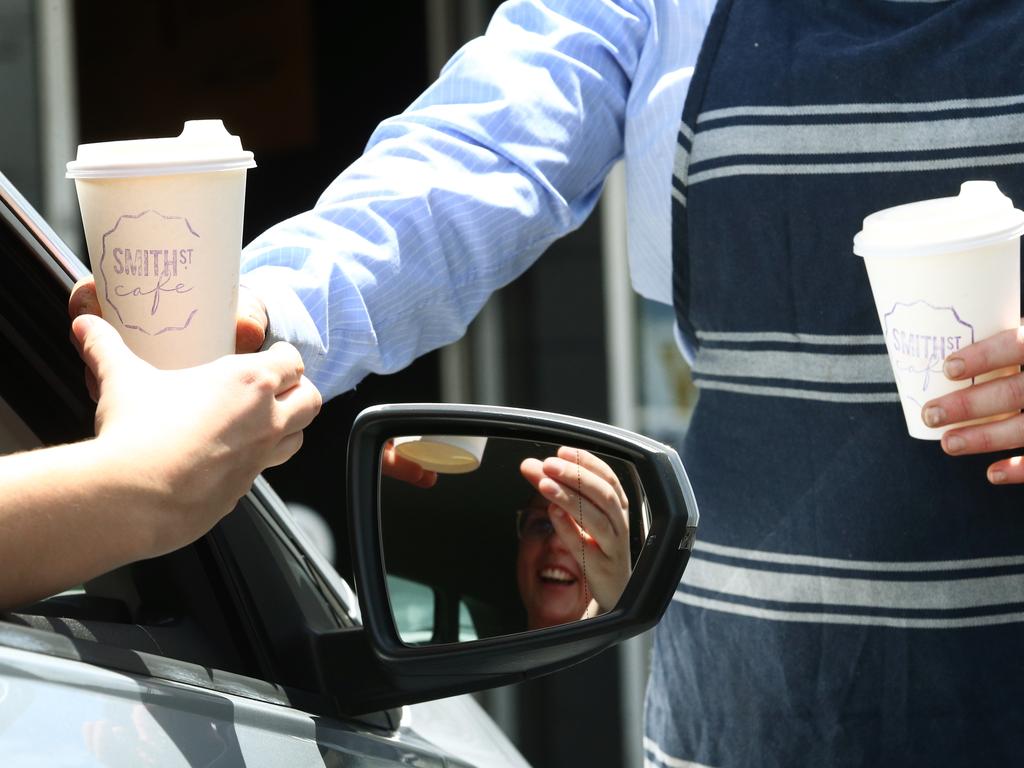Coronavirus: consumer confidence crashes amid dire jobless forecasts
Consumer confidence has collapsed in its biggest one week fall on record, as analysts fear unemployment could hit 11pc.

Consumer confidence has collapsed in its biggest one week fall on record, as fears grow the increasingly draconian measures to control the spread of the coronavirus will spark a “depression-like” economic contraction and drive the jobless rate to 11 per cent.
New analysis by JP Morgan predicts unemployment will surge into double digits and that the closing of “non-essential” businesses will trigger a 10 per cent collapse in GDP through the June quarter, in what would be the largest decline in the history of quarterly national accounts.
As long queues form outside social security offices around the nation, consumers are now as worried as they were during the early 1990s recession, ANZ head of Australian economics David Plank said.
The bank’s consumer confidence index plunged 28 per cent over the past week to a level below where it registered in the depths of the global financial crisis. It was only lower during the 1990-91 downturn, and even then “only just”, Mr Plank said.
The confidence index, based on a survey by Roy Morgan of over 1700 consumers on the weekend, showed its biggest ever weekly fall since the index shifted from monthly to weekly in 2008.
In a worrying sign for retailers, some of whom have been spared the forced shutdowns, the category “time to buy a major household item” fell by 37 per cent, more than any other category in the index.
Overall, the index fell to 72.2, compared to a long run average since 1990 of 113.
A separate Roy Morgan survey of businesses last week found almost 60 per cent said the economy was in “recession” already, including almost 70 per cent in Queensland – more than any other state – whose tourism sector is expected to be hit especially hard by the collapse of international travel.
Up-to-date credit card spending data from the Commonwealth Bank confirmed the dramatic impact the coronavirus was having on spending patterns, as households raced to stock up on essentials.
Credit card spending in grocery stores and supermarkets over the past week was up by a “whopping” 74 per cent on year ago, CBA senior economist Gareth Aird said.
Spending in restaurants and cafes was down by 1.3 per cent – an even weaker result than it appeared as year-on-year growth had averaged 20 per cent earlier in the year due to the increased popularity of spending by contactless payments.
Other categories to experience huge jumps in spending were alcohol, up 37 per cent on a year ago, and health services, up 25 per cent, as Australians stockpiled pharmaceuticals.
ANZ-Roy Morgan Australian Consumer Confidence: plunges. All sub-components are well below average and well below the levels of the GFC. Only the 1990-91 recession is comparable. #ausecon #ausretail @roymorganonline @DavidPlank12 pic.twitter.com/2urGojYuae
— ANZ_Research (@ANZ_Research) March 23, 2020
As households increasingly fear job losses and amid a string of terrifying news related to the global pandemic, JP Morgan economist Ben Jarman said he expects the economy will contract by 9.7 per cent over the three months to June as “the combined national and state-level restrictions announced over the weekend add to the already-unprecedented drag on output”.
Unemployment will jump as high as 11 per cent in the coming months, Mr Jarman said – a number which will be flattered by a fall in the labour force participation rate as newly jobless Australians do not classify themselves as job seekers.
“There is a lot of uncertainty around participation, and our best-guess in this environment is that around half of the newly jobless may not declare as searching in the separate household labour force survey,” Mr Jarman said.
He said if those dropping out of the workforce were included, the unemployment rate would more likely be 16 per cent.
JP Morgan’s updated forecast of the economic cost associated with drastic action to contain the spread of the virus, such as closing down non-essential businesses such as pubs, clubs, and casinos, comes after a skeleton sitting of parliament passed $84 billion in stimulus measures designed to support households and businesses through the worst of what is increasingly expected to be a deep recession.
As the escalating costs of containing the virus become clearer, NAB head of currency strategy Ray Attrill said it was “realistic” to say the economy was entering into a “depression-like contraction”.
But Mr Attrill also expressed hope this would “be the shortest depression in human history because of the policy support that is being provided and of course making the heroic assumption that these containment efforts will ultimately prove successful”.
Amid a global effort to fend off the worst of the economic blow from the worst pandemic in a century, Josh Frydenberg overnight met with leading finance ministers on a phone hook-up which included the International Monetary Fund, the OECD, and central banks.
“The expectation is that global growth will be negative this year,” the Treasurer said following the meeting.
Mr Frydenberg also noted that there were growing concerns of a looming financial crisis among emerging countries as the global coronavirus crisis triggered capital flight.
“Significantly around 80 countries have approached the IMF for financial support with the impact on many developing countries becoming acute,” he said.
“The IMF is also seeing significant capital outflows from emerging economies creating instability in those financial markets.”
The US Federal Reserve overnight launched a new, massive and unlimited quantitative easing program which analysts said goes beyond the actions taken over a decade ago.
“The Fed has committed to buying debt, not just government and residential mortgage backed securities but now for the first time commercial mortgages,” Mr Attrill said.
“Unlike during the post GFC period when there were quantitative limits on how much the Fed would buy each month, purchase amounts are now unlimited.”





